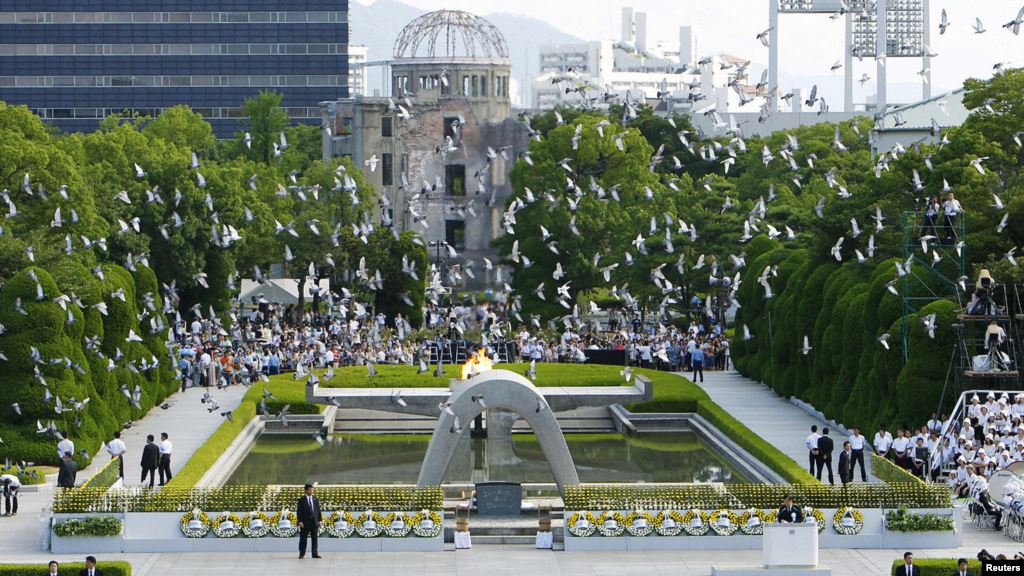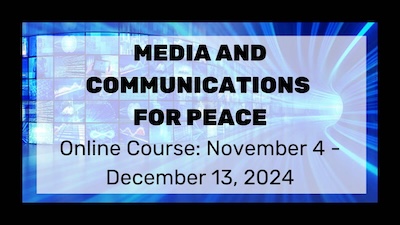
By ICAN, April 14, 2023
For the first time ever, heads of state from Canada, France, Germany, Italy, Japan, the United Kingdom and the United States, as well as high level representatives from the European Union, the G7, will meet in Hiroshima, Japan. They cannot dare to leave without a plan to end nuclear weapons.
Japan’s Prime Minister Fumio Kishida decided that Hiroshima was the best place to discuss international peace and nuclear disarmament in light of Russia’s invasion of Ukraine and the threats of nuclear weapons use. Kishida represents a Hiroshima district and lost family members in the bombing of this city. This is a unique opportunity for these leaders to commit to a plan to end nuclear weapons and unequivocally condemn the use or threat to use nuclear weapons.
The May 19 – 21, 2023 summit will be the first visit to Hiroshima for many of these leaders.
It is customary for visitors to Hiroshima to visit to the Hiroshima Peace Museum, to lay flowers or a wreath at the cenotaph to honour the lives lost as a result of 6 August 1945 bombing, and to take the unique opportunity to hear the account of that day first hand from nuclear weapon survivors, (Hibakusha).
Key points for G7 leaders to consider:
Reports out of Japan indicate that an action plan or other commentary on nuclear weapons will emerge from the Hiroshima meeting, and it is important that G7 leaders commit to serious and substantive nuclear disarmament actions, especially after witnessing the catastrophic impact the smallest weapons in today’s arsenals have previously wrought. ICAN therefore calls on G7 leaders to:
1. Unequivocally condemn any and all threats to use nuclear weapons in the same terms as the TPNW states parties, individual leaders, including Chancellor Scholz, NATO Secretary-General Jens Stoltenberg and the G20 have done over the past year.
Russia’s invasion of Ukraine has been shielded by repeated explicit and implicit threats to use nuclear weapons by the president of the Russian Federation as well as other members of his government. As part of the global response to strengthen the taboo against the use of nuclear weapons, the state parties to the Treaty on the Prohibition of Nuclear Weapons condemned threats as unacceptable. This language was later also used by several leaders of the G7 and others, including German Chancellor Scholz, NATO Secretary General Stoltenberg and the members of the G20 at their recent summit in Indonesia.
2. In Hiroshima, the G7 leaders must meet atomic bomb survivors (Hibakusha), pay their respects by visiting the Hiroshima Peace Museum and lay a wreath of flowers at the cenotaph, in addition, they must also formally recognise the catastrophic humanitarian consequences of any use of nuclear weapons. Just paying lip service to a world without nuclear weapons would be to dishonour the survivors and victims of the atomic bombing.
When choosing a location for the G7 summit, Japan’s Prime Minister Fumio Kishida decided that Hiroshima was the best place to discuss international peace and nuclear disarmament. World leaders who come to Hiroshima pay their respects by visiting the Hiroshima Peace Museum, lay a wreath of flowers at the cenotaph, and meet with Hibakusha. However, it is not acceptable for the G7 leaders to visit Hiroshima and merely pay lip-service to a world without nuclear weapons without formally acknowledging the catastrophic humanitarian consequences of any use of nuclear weapons.
3. The G7 leaders must respond to Russia’s nuclear threats and the increased risk of nuclear confrontation by providing a plan for negotiating nuclear disarmament with all nuclear weapons states and joining the UN Treaty on the Prohibition of Nuclear Weapons.
Complementary to condemning threats to use nuclear weapons and recognising their humanitarian consequences, concrete steps towards nuclear disarmament must be a priority for the year 2023. Russia has not only threatened to use nuclear weapons but also announced a plan to station nuclear weapons in Belarus. Thereby, Russia increases the risk of nuclear confrontation, tries to hold the world hostage and creates an irresponsible incentive for proliferation for other countries. The G7 must do better. The governments of the G7 must respond to these developments by providing a plan for negotiating nuclear disarmament with all nuclear weapons states and by joining the Treaty on the Prohibition of Nuclear Weapons.
4. Following Russia announcing plans to place nuclear weapons in Belarus, the G7 leaders must agree on a ban on all nuclear-armed states stationing their weapons in other countries and engage Russia to cancel its plans to do so.
Several G7 members are currently involved in nuclear sharing arrangements of their own, and can demonstrate their disdain for Russia’s recent deployment announcement by commencing negotiations of new Standing of Forces Agreements between the US and Germany and the US and Italy (as well as similar arrangements with non-G7 countries, Belgium, the Netherlands and Turkey), to remove the weapons currently stationed in those countries.









5 Responses
When calling for global nuclear disarmament, one must also ask whether the nuclear powers in today’s world can afford to forgo nuclear deterrence. The general question arises: is a world without nuclear weapons even possible?
Ihttps://nobombsworld.jimdofree.com/
Of course it is possible. However, this presupposes the political unification of mankind in a federal World Union. But for this the will is still missing, with the people in general, as well as with the responsible politicians. The survival of mankind has never been so uncertain.
I hope the link works like this:
https://nobombsworld.jimdofree.com/
The G7 should resolve to definitively defeat Putin’s thugs in the current war to defend Ukraine’s independence and democracy generally; then to follow the example of the 13 American colonies, assembled in New York after winning their War of Independence, in setting up a global constitutional convention (not necessarily in Philadelphia) to produce a Constitution for a Whole Earth Federation to provide a framework for replacing the UN and for comprehensively ending this unsustainable era of “sovereign” nation states, nuclear weapons, obscene global inequalities and war, thus initiating a sustainable era of a common humanity under law.
You keep using this phrase “Whole Earth.” I do not think it means what you think it means.
Did their petition to the British government make any difference?
https://mondialists.blogspot.com/2019/11/global-philadelphia-convention.html